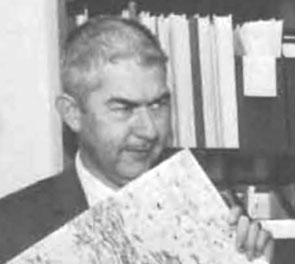Kopal and Carder, 1974
Contents
[hide]Kopal and Carder: Mapping of the moon. Past and present (1974)

Description
Thorough and well illustrated history of lunar cartography from 1600 through about 1972, with a strong emphasis of the charting efforts associated with the US Apollo program. Includes four detailed technical chapters on how the three dimensional positions of lunar features are determined.
Additional Information
- Zdeněk Kopal was the Professor of Astronomy in charge of the lunar program at the University of Manchester, England whose emphasis was on determining the heights of lunar surface features based on photo sequences obtained at the Pic du Midi observatory in France. He was editor of a Photographic Atlas of the Moon among many other works.
- Robert W. Carder was Chief of the Aerospace Charting Branch of the U.S. Defense Mapping Agency at its Aerospace Center in St. Louis, Missouri, and directed charting in support of the Apollo program. During the period described in the book, the St. Louis organization for which he worked was known as the Aeronautical Chart and Information Center (ACIC).
- {| class="captionBox"
| class="captionedImage" |
[[History of the LAC maps| ]]
|-
| class="imageCaption" | Carder displaying a prototype of the LAC 76 map
|}
]]
|-
| class="imageCaption" | Carder displaying a prototype of the LAC 76 map
|}
- TABLE OF CONTENTS
- PREFACE : VII
- Chapter 1 : History of Lunar Mapping: 1600-1960 : 1
- Chapter 2 : Rotation and Librations of the Moon : 50
- Chapter 3 : Selenographic Coordinates : 61
- Chapter 4 : Shape of the Moon :72
- Chapter 5 : Relative Elevations on the Moon : 93
- Chapter 6 : U.S. Air Force Lunar Mapping : 114
- Chapter 7 : Lunar Mapping at Lowell Observatory : 147
- Chapter 8 : U.S. Air Force Space Support Mapping : 168
- Chapter 9 : U.S. Army Lunar Mapping : 189
- Chapter 10 : U.S.S.R. Lunar Mapping : 213
- Chapter 11 : National Geographic Lunar Mapping : 229
- NAME INDEX : 235
- The somewhat mysteriously titled Chapter 7 describes the facility maintained by the Air Force at Lowell Observatory (Flagstaff, Arizona) from September 1961 through April 1969, where the LAC and AIC series maps were produced to support planning for the Apollo program. The ACIC artists' work was closely coordinated with visual observations made by their observers using the observatory's historic 24-inch Clark refractor, later supplemented, as the program grew, with a modern 20-inch refractor purchased for the program by the observatory and rented to the ACIC. The telescopes were equipped with 35 and later 70 mm movie cameras that could be used to record bursts of images at the moments of best seeing. The visual notes, sketches and photographic records were used to supplement the basic topography determined from previously existing photos. Before publication, the charts were taken to the LPL in Tuscon where the portrayal of features was adjusted in response to comments from lunar experts Gerard Kuiper, D.W.G. Arthur and Ewen Whitaker. See History of the LAC maps for excerpts from this chapter.
- The book was written before, and hence does not describe production of the Apollo-based LTO chart series.
LPOD Articles
Bibliography
- Kopal, Zdeněk; Carder, Robert W. 1974. Mapping of the moon. Past and present. Astrophysics and Space Science Library, Dordrecht: Reidel. (Review by Ewen Whitaker)